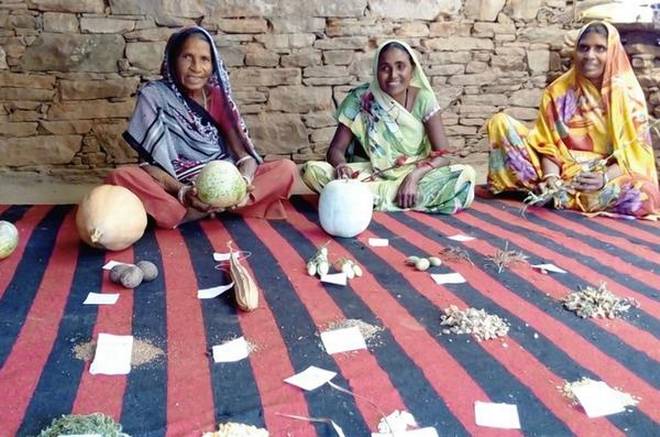
Urge parties to frame policies to preserve
For southern Rajasthan’s tribals, the Assembly elections are an opportunity to press their demand with the contesting political parties for framing policies that ensure food security, even while helping them preserve indigenous practices, and assist in forming new linkages with the local health and financial services.
The region’s tribal population wants political representatives to make interventions to help the community improve resource management in agriculture, forestry, animal husbandry, pasture, medicinal products and fruits.
While tribal communities residing in Banswara and Dungarpur districts earlier enjoyed a forest resource based livelihood, large-scale deforestation has forced them to shift to farming on sloping land and caused degradation. Continued and damaging water run-off that has resulted in the loss of agricultural land along the stream course in several areas and led to adverse effects on ground water conditions in Banswara district. Mundri village, situated 70 km away from the district headquarters, depicts the dilemma of farmers in the selection of crop pattern for such land.
Tribal activist Amrit Lal Harji, a recipient of the Ummed Mal Lodha environment award, said that some aspects of rain-fed agriculture had revealed that it had the potential to protect farmers against the impacts of climate change and promote the rich food diversity still conserved by tribal families.
‘Focus on nutrition’
The emphasis on nutrition-based agriculture rather than market-oriented farming would strengthen the rural livelihood scenario, said Mr. Harji.
Bagidora MLA Mahendrajeet Singh Malviya, the only Congress leader elected from Banswara in 2013, hails from a tribal family of Naharpura village. Contesting from Bagidora again, Mr. Malviya promised that policy formulation on food and agriculture would be his highest priority.
Jayesh Joshi, secretary of Vaagdhara, which works on tribal livelihood issues, said tribal farmers should be encouraged to define their own food and agriculture systems in order to get “healthy and culturally appropriate” food produced in a sustainable manner.
“The State government’s ongoing programmes for uplift of tribals have undervalued the contribution of farmers’ practices. Tribals have an enormous storehouse of knowledge on food gathering, shifting hill cultivation, pastoralism, labour and handicrafts,” he said.
Interestingly, women members of tribal families have pitched in to help overcome gender inequality and have been working to improve food security for women within households.
Resham Bhabor, 65, a member of a women’s self-help group in Mundri, earlier used to be the last member in the family to eat. Not anymore.
“It is not the practice prevalent any more in the tribal households here,” she said.
First published by The Hindu on 27 Nov. 2018